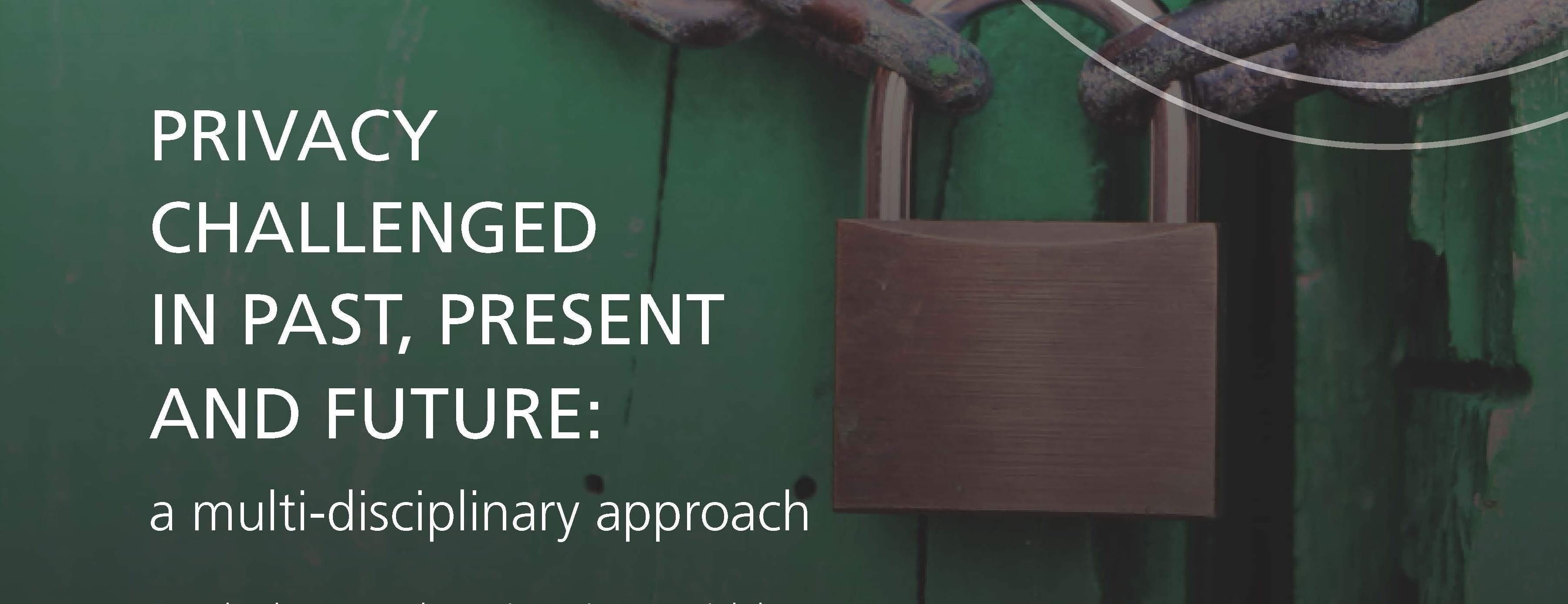Privacy challenged in past, present and future: a multi-disciplinary approach
Online summer course at the Faculty of Theology, 9 August - 20 August 2021
Due to the COVID-19 situation the course will be taught in a digital format. The deadline has been extended to 17 June.
This course is part of IARU.
Credits: 7.5 ECTS
For course overview and presentation of teachers - follow link to Centre for Privacy Studies

Everybody agrees that privacy is essential, but no authoritative definition exists. Notions of privacy and private concern the confrontation between the individual and his or her surroundings and the boundaries drawn in this context. Recent technological innovations have incited a general concern with privacy, but also narrowed our understanding. We associate privacy with data protection and consider it as a value that is relevant only for our age.
Privacy, however, has deep historical roots. When we study privacy across the gap between past and present, we gain a better sense of the rich and complex implications of the evasive term ‘private’ which is the opposite not only of ‘public’, but also of ‘professional’, ‘common’ and ‘evident’. A multi-perspectival view shows how notions of privacy past and present shape and are shaped by a broad range of societal factors.
This course will take a multidisciplinary approach to privacy past and present. The course will introduce the students to a broad array of approaches and analytical skills. It will teach them to examine how delineations of privacy permeate widely different dimensions of Western culture, while opening a view towards a global perspective and discussing if, where and how privacy can be protected in the future. Bridging the gap between past and present, the course introduces a new approach both to historical studies and to studies of contemporary culture and society.
Among the topics treated in the course are:
- Privacy and surveillance: from early modern Quartermasters to the tracking of digital footprints
- Privacy and citizen archives: from parish registers to DNA-registers
- Privacy in society: from potential societal threat to human right
- Privacy and the self: subjectivity past and present
- Architectural framing of private space: from communal alcoves to glass facades
- Politics and diplomacy between public and private: from princely mirrors to tweeting presidents
- Representing privacy: art, theatre, literature
The students’ different backgrounds will be used as the point of departure for a global perspective on privacy.
Classes include lectures, discussions and group work. After completion of the course, the students will have learned analytical skills suited to a broad range of materials; have been trained to work across different periods and societal contexts; and, finally, have experienced an open and inquisitive scholarly atmosphere.
Chartier, Roger with Philippe Ariès and Georges Duby (eds), A History of Private Life, Volume III: Passions of the Renaissance (Harvard; Belknap Press, 1989)
Rössler, Beate, The Value of Privacy (Cambridge: Polity Press, 2014)
Sloot, Bart van der and Aviva de Groot (eds), The Handbook of Privacy Studies: An Interdisciplinary Introduction (Amsterdam: Amsterdam University Press, 2018)
No field trip in 2021 due to the COVID-19 situation
Canal tour by boat/walking; Holmen and Christianshavn; Copenhagen private architecture past and present; Privacy at Hirschsprung’s Samling.
The course aims at students interested in history, literature, media and communications, art history, law, philosophy, religion, theology, architecture and social science, though all disciplines are welcome. This course is open to 3rd and 4th year undergraduate students as well as first year graduate students. You must have completed 120 ECTS points before the summer course begins.
The assessment is based on two parts:
Course participation: Active class attendance (75% attendance). Active course participation is a prerequisite for writing the exam paper.
Undergraduate requirements: Familiarity with a reading list (primary and secondary literature) of 600 - 750 pages. A written paper of 16,800 – 21,600 characters approx. 7-9 pages (formally, 2400 characters per page, including spaces), based on 250-300 pages of primary literature.
Master requirements: Familiarity with a reading list (primary and secondary literature) of 600 - 750 pages. A written paper of 19,200 – 24,000 characters approx. 8-10 pages (formally, 2400 characters per page, including spaces), based on 450-600 pages of primary literature.
Assessment: Danish 7-point grading scale and ECTS letter grading scale.
Final Paper due 15 September.
Application and tuition fees
Experiences of the course
This course was first offered in the summer 2019. Read our feature about the first run of the course published September 2019:
Privacy Summer School Revisited ‘Either you get dizzy, or you enjoy the roller coaster ride’
Application and tuition fees
Application deadline is 1 April
Applicants from a Danish university or Danish citizens can apply up until 1 June
Read about application, tuition fees and accommodation here.
Contact: international@teol.ku.dk
Venue
Room 6B-0-22
Faculty of Theology, Karen Blixens Plads 16, 2300 Copenhagen S, Denmark.
